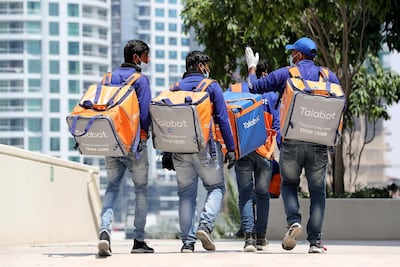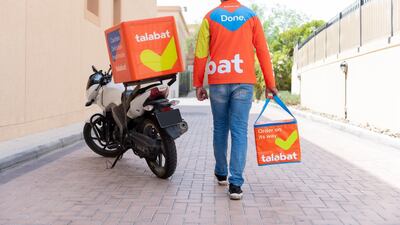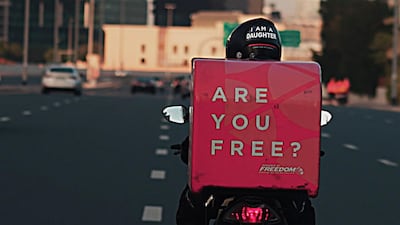Full-time contracts and electric bikes are measures mooted by food delivery bosses to make roads safer and improve working conditions for drivers.
With growing competition in the industry, local companies are looking at new ways of lowering operating costs that will also be beneficial to riders.
An international leader of the food delivery model is Just East Takeaway.com.
Its founder and chief executive, Dutch billionaire Jitse Groen, recently said it was “incredibly difficult” to make a profit on food logistics, as intense competition kept charges low.
To cut costs, many companies use delivery fleet operators rather than directly employing riders.
Ian Ohan, chief executive of Krush Brands and Freedom Pizza, said adopting change would revolutionise the industry.
“We employ our drivers directly rather than use an agency,” he said.
“So we do not incentivise our delivery riders to make as many drops as possible.
“Other riders are not always provided with adequate training, safety gear or insurance when delivery companies offset these costs to a third party," Mr Ohan said.
“You will never see our drivers waiting around for a call to come in so they can work.”
As staff are full-time, when they are not out on deliveries the 125 trained riders work elsewhere in the business.
Road safety initiatives for riders

The UAE’s largest food delivery fleet is talabat.
In March, it introduced bi-monthly salary payments to help riders with cash flow and a tipping feature allows customers to top up a driver’s fee.
The company has just launched a new road safety initiative for riders, in partnership with Abu Dhabi Police.
Safety patrols will monitor riders to check they are complying with rules and regulations and offer advice and care when needed. The scheme is due to be rolled out across the Emirates.
All riders will have delivery boxes fitted to bikes by the end of 2021, rather than carry cheaper, cumbersome "back-pack boxes" that risk instability.
"At talabat, we care immensely about our amazing riders and have great respect for them and what they do," said Jeremy Doutte, UAE managing director.
“It is thanks to them that we are able to continue supporting our customers and people across the UAE – they are a part of our family and their wellbeing and safety is our top priority.”
In January, Dubai’s Roads and Transport Authority (RTA) introduced a set of standards for the licensing of delivery services, in line with the steady growth of the industry.
It received 43 per cent more applications for licences in 2019 than the year before.
Stipulations covered the level of licence, delivery means, delivery staff training, standards of delivery boxes and driver uniform.
Dubai's first electric delivery bikes
British businessman Adam Ridgway, founder of OneMoto in Dubai's Sustainable City, is developing electric delivery motorcycles in the UAE that could reduce overheads for riders and fleet operators.
Mr Ridgway said switching to OneMoto’s Byka electric motorcycle could reduce operational costs by up to 74 per cent.
Charging the e-bikes takes around an hour, but battery banks could enable a quick swap to a fully-charged unit to get riders back on the road immediately.
OneMoto has the potential to make up to 10,000 bikes a month in China.
The bike's LG batteries have been extensively tested in the extremes of the UAE summer.
A report by renewable energy company Masdar, titled Technologies for Future Smart City Transit, said declining battery costs would help the UAE hit a target of electric vehicles making up 20 per cent of road users by 2030.
Between 2010 and 2017, the cost of batteries fell by 81 per cent.

While a switch towards electric vehicles would boost UAE sustainability targets, Mr Ridgway said better training is required to tackle poor road skills that contribute to collisions.
He recently spent a week as a delivery rider on one of his electric bikes to test working conditions.
“The road awareness of the riders was shocking,” said Mr Ridgway.
“I’ve been riding for 20 years and I could see a worrying lack of road knowledge.
“More awareness is needed from drivers, but the riders need to also understand the road better themselves.
"That would be easier if the pressure on them was removed and reducing their costs would help.”
The Noodle House, owned by Sarood Hospitality – a subsidiary of Dubai Retail, a Dubai Holding company – is set to launch five of the electric delivery motorbikes from its restaurants this week.
The 10 contracted delivery riders for the company cover about 500,000 kilometres a year, with the switch to electric set to save up to Dh60,000 ($16,334), according to Sarood Hospitality operations director Steven Holloway.
“We have always been forward-thinking about sustainability and how to decrease our carbon footprint,” he said.
“The fleet was due to be upgraded soon, so this was a good opportunity.
“Aside from tyres and brake pads, there are very few other moving parts that need replacing.
“We hold quarterly health and safety meetings with our riders and analyse any near misses to see what lessons can be learned," Mr Holloway said.
“There is not a huge emphasis on turnaround time, but we try to deliver within 45 minutes even if that means we reduce the amount of deliveries.
“Our riders have not been in an accident for two years, which we are very proud of.”












